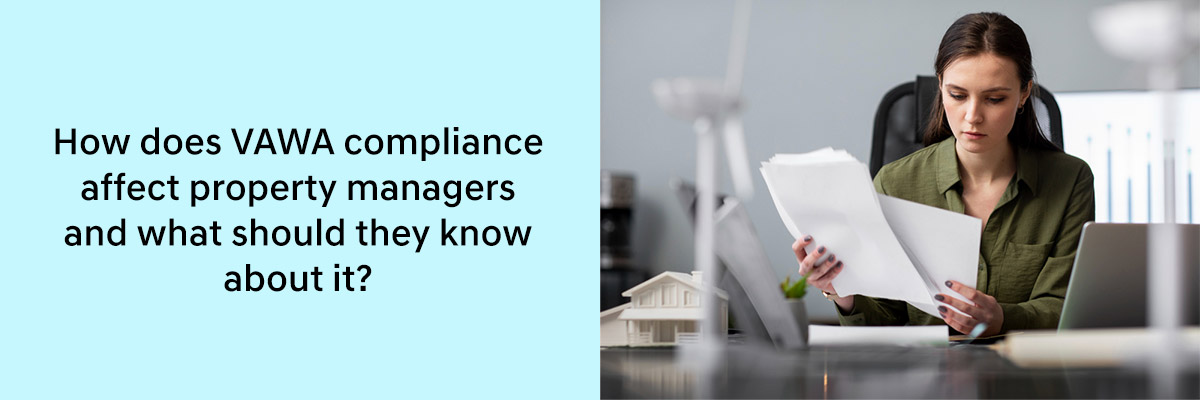Property management is a multifaceted role that involves various responsibilities, including maintaining properties, addressing tenant concerns, and adhering to legal regulations. One crucial aspect of property management that often goes overlooked is compliance with the Violence Against Women Act (VAWA).
VAWA is a federal law that protects individuals who are victims of domestic violence, dating violence, sexual assault, or stalking.
In this blog, we will explore how VAWA compliance affects property managers and what they should know about it.
Understanding VAWA
The Violence Against Women Act was first passed in 1994 and has since been renewed multiple times. Its purpose is to protect and help those who have been victims of domestic abuse and other crimes. VAWA is applicable to a number of organizations, including owners of federally subsidized homes and public housing authorities. The latter group includes property managers, making VAWA compliance an important component of their work.
How VAWA Affects Property Managers
In order to comply with VAWA and fair housing laws, property managers should understand how VAWA can affect them and their residents. Here are a few things to keep in mind:
1. Nondiscrimination:
Property managers must understand that VAWA requires them to adopt and implement policies that do not discriminate against victims of domestic violence, dating violence, sexual assault, or stalking. This means treating these tenants with the same rights and privileges as any other tenant.
2. Lease Termination:
One key aspect of VAWA is that it allows victims to break their leases without financial penalties if they can demonstrate that their safety is at risk due to the aforementioned crimes. Property managers should be prepared to handle such requests and ensure they comply with VAWA provisions.
3. Documentation:
Property managers must maintain strict confidentiality when it comes to any information related to a tenant’s status as a victim under VAWA. It’s essential to keep detailed records of any incidents or requests related to VAWA compliance while respecting the tenant’s privacy.
4. Notification:
VAWA also requires property managers to notify tenants of their rights under the act. This includes providing information about available resources and assistance. Managers should ensure that all tenants receive this information upon move-in and periodically during their tenancy.
5. Eviction Prevention:
Property managers should be proactive in addressing potential issues that could lead to eviction for victims. This may include addressing disruptive behavior by the perpetrator, changing locks or security measures, or involving law enforcement when necessary to ensure the safety of the victim.
6. Training:
Adequate training for property management staff is critical to ensure VAWA compliance. Staff members should be knowledgeable about VAWA requirements and how to handle sensitive situations involving victims.



What Property Managers Should Know about VAWA:
1. Familiarize Yourself with VAWA:
Managers should learn how VAWA applies to their property or properties, and how to file VAWA complaints if the victim is ready. Familiarity with federal and state laws related to domestic violence is essential.
2. Develop VAWA Policies:
Create and implement VAWA policies that clearly outline the procedures for handling situations involving victims. These policies should cover lease termination, confidentiality, notification, and tenant rights.
3. Collaborate with Support Organizations:
Establish relationships with local domestic violence support organizations and law enforcement agencies. Having these connections can be invaluable when dealing with sensitive situations.
Take Away:
VAWA compliance is a crucial aspect of property management, as it protects some of the most vulnerable tenants. Property managers must be well-informed about VAWA provisions, develop appropriate policies, and ensure their staff is trained to handle situations involving victims of domestic violence, dating violence, sexual assault, or stalking. By doing so, property managers can create safe and supportive living environments for all tenants, while also fulfilling their legal obligations under federal law. If you want to learn more about HUD’s rules and regulations on harassment and domestic violence then register for our webinar training from industry experts.


